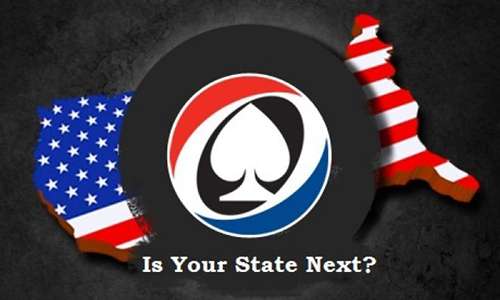Washington State Online Poker Bill Reintroduced
The northwest US state of Washington, the only US state where the playing of online poker by residents and visitors is officially considered a felony, is set to reconsider the legalization and regulation of online poker after securing a resolution allowing the reintroduction of a related House bill. Washington State Representatives Sherry Appleton and Vincent Buys have reintroduced Appleton’s House Bill 1114, marking the fourth time that Appleton’s bill has been reintroduced for consideration since first being created a little over a year ago.
 Appleton’s and Buys’ reintroduction of HB 1114 returns the original bill in its entirety for legislative consideration. The bill is unexceptional when compared to similar legislation in other states, and includes these common-sense rules:
Appleton’s and Buys’ reintroduction of HB 1114 returns the original bill in its entirety for legislative consideration. The bill is unexceptional when compared to similar legislation in other states, and includes these common-sense rules:
- It’s a poker-only bill;
- If regulated, an age-18 minimum would be in effect (several other states set the minimum age at 21);
- Allows for regulatory approval for service providers to be determined by either the Washington state gambling commission or an unspecified tribal regulatory body.
- License fees would be assessed to cover the cost of regulatory infrastructure and to provide support services for problem gamblers;
- Licensing for both the consumer-facing sites and for ancillary, behind-the-scenes support service would be authorized;
- Official tax rates would be determined later, as the bill moves closer to passage.
(To read the original and now-reintroduced bill’s text in its entirety, please click here.)
Still, despite the continued efforts of Appleton and a handful of the state’s legislators, there still appears to be no massive voter-based or legislative push for a repeal of the original ban. Because of that, the latest Appleton-Buys effort can’t be considered as much more than a long shot, no matter how well-intentioned and needed the bill might be.
Washington’s existing felony ban of both the playing of online poker and the providing of services allowing same stands as one of the United States’ saddest and most corrupt instances of legislative misdeeds regarding online gambling. The state’s ban dates from 2006,and despite repeated attempts by residents and lawmakers to launch a repeal, including Appleton’s latest efforts, the ban so far remains in place. However, no one has ever been charged, despite widespread play on offshore “gray market” sites by the state’s residents; the state’s law enforcement agencies appear to have taken an unofficial stance that they don’t plan to arrest anyone, since the farcical and unjust nature of the law as passed equates the playing of a 50-cent sit-‘n-go with the possession of child pornography in terms of possible criminal penalties… an utterly ludicrous and corrupt situation.
How the Washington state situation is a textbook of corrupt power politics and personal greed. Back in 2006, lobbyists representing the states’ tribal casinos and licensed cardrooms greased the political chutes in their effort to get online poker ban, because they viewed online-gambling sites, incorrectly, as direct competition to their land-based operations. The casinos and cardrooms found their legislative champion in State Sen. Margarita Prentice, who introduced a bill that was quickly passed by both Washington legislative bodies and signed into law, spurred by the combination of big bucks (from the lobbyists) and the fear-mongering thus served up in the casino’s interests.
Washington’s 2006 online poker ban, thus served as the precursor of sorts for the nationwide RAWA online-gambling ban funded by Las Vegas Sands Corp. CEO Sheldon Adelson. Adelson is magnitudes richer, magnitudes more corrupt, yet he wants RAWA in place for the same greedy reasons as those behind the 2006 Washington ban.
Prentice, in the Washington example, proved herself the worst type of nanny legislator. She was bounced after a single term of service but remnants of her legacy remain, such as Washington’s exceptional and unfair online-poker ban. Prentice’s arrogance on the topic was on full display back then when ESPN reported on the 2006 ban, focusing on the story of then-Washington-base player Dan “wretchy” Martin, who collected a big score online only to learn, weeks later, that he’d have to leave his home state in order to continue playing online.
“I just think some of these arguments are utter nonsense,” Prentice told ESPN back then. “You mean you’re going to move so you can play poker? Gee, lots of luck in your life. … I have nothing against card playing. That’s fine. If you want to do that, but I’m sure not going to worry about someone … you know. Let them go pump gas.”
Washington needs to prove that it can overcome such entrenched and well-funded arrogance. To date, the state has been unsuccessful in that effort.





















COMMENTS